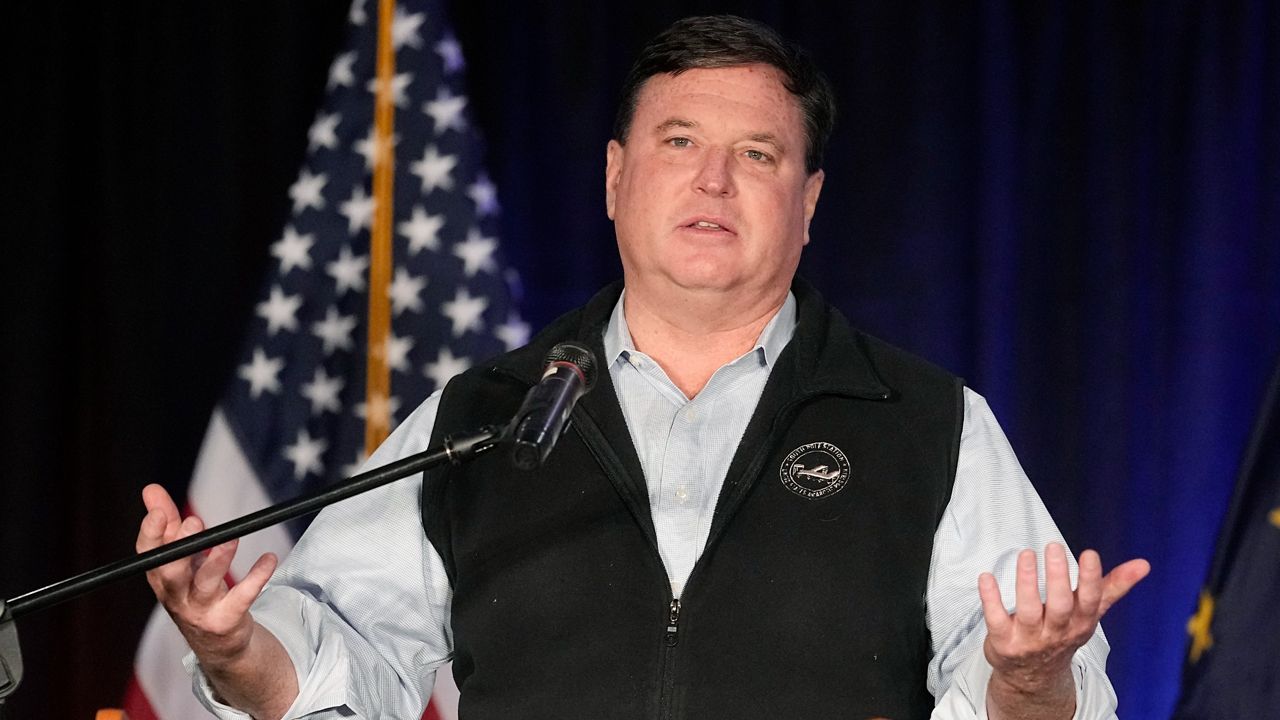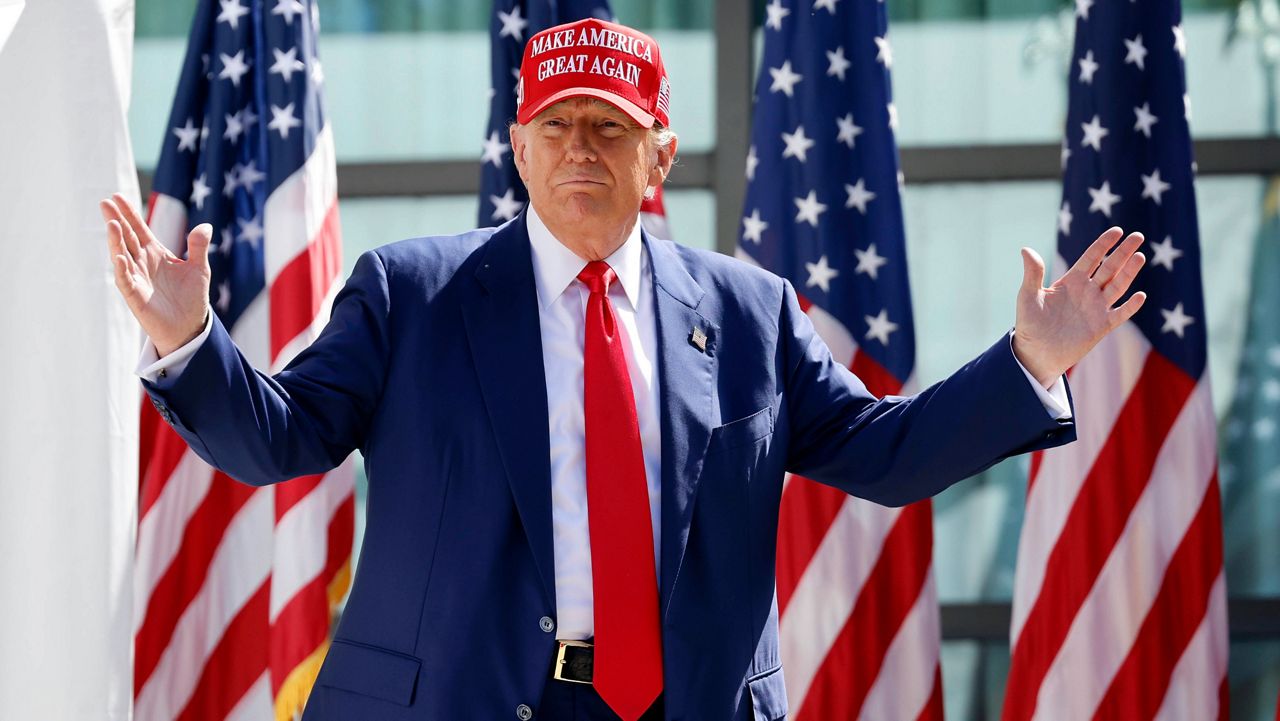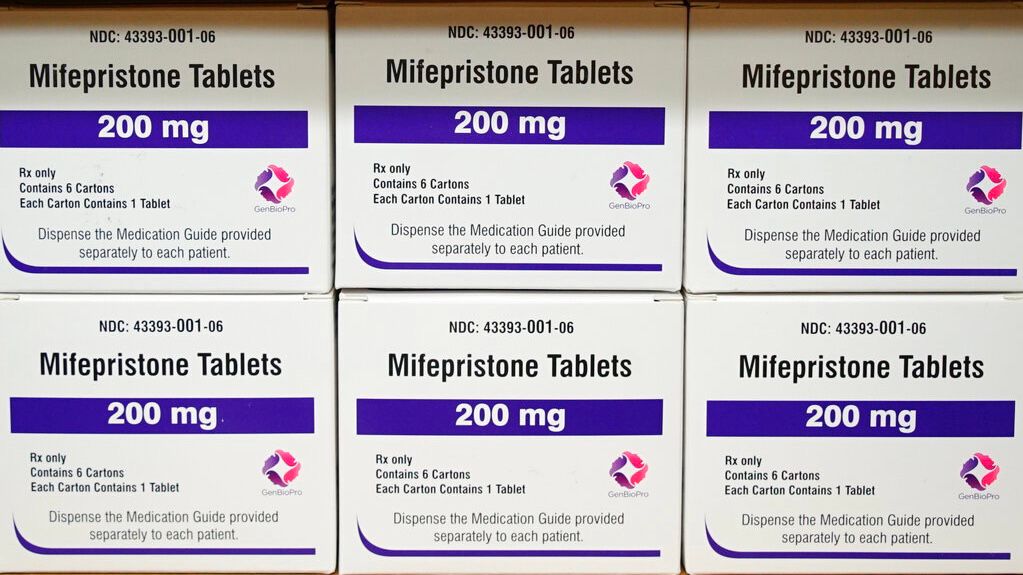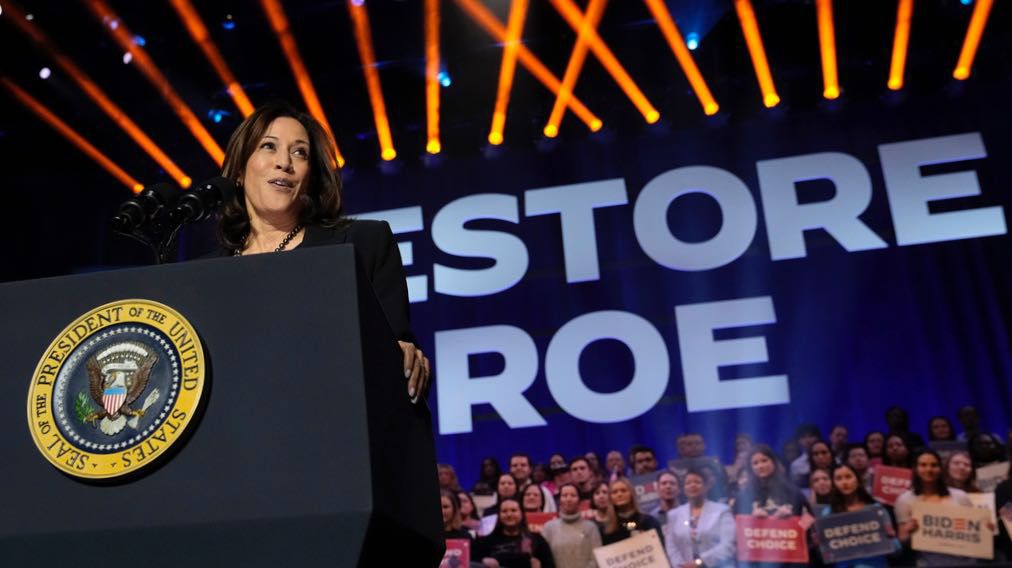In the weeks leading up to the Supreme Court’s Friday ruling overturning Roe v. Wade, Americans – both for and against abortion access – gathered outside the nation’s highest court, kept away from the marble steps with black barricades and an ever-increasing law enforcement presence.
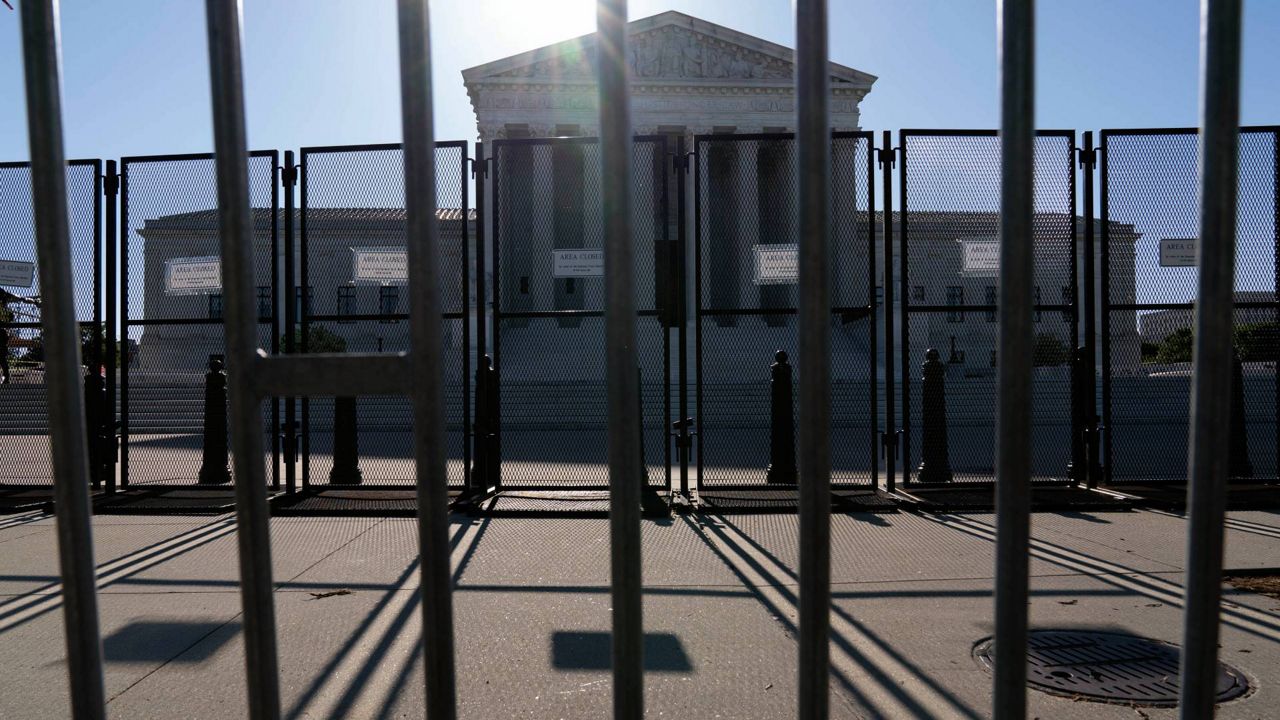
Protests in favor of abortion rights exploded in size following the justices’ ruling sending the issue back to the states to decide, both in Washington, D.C. and in state capitals across the country.
“I call on everyone, no matter how deeply they care about this decision, to keep all protests peaceful. Peaceful, peaceful, peaceful,” President Joe Biden said from the White House. “No intimidation. Violence is never acceptable. Threats and intimidation are not speech. We must stand against violence in any form, regardless of your rationale.”
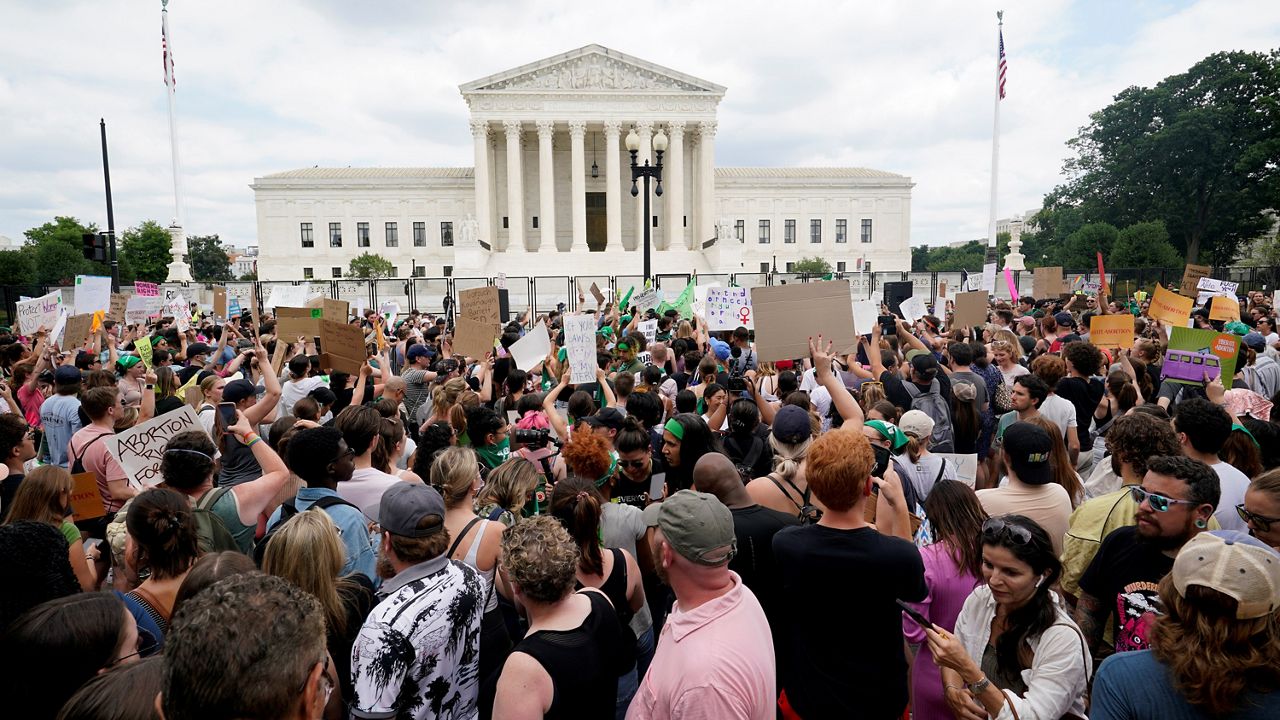
Nonetheless, protests were only expected to grow in the coming days – with the Department of Homeland Security reportedly warning to "expect violence could occur for weeks following the release, particularly as (domestic violent extremists) may be mobilized to respond to changes in state laws and ballot measures on abortion stemming from the decision,” per a memo obtained by ABC News.
Some lawmakers joined their constituents on the ground, including New York Democrat Rep. Alexandria Ocasio-Cortez, saying “we have to fill the streets” and make their opinions known in the battle to protect abortion rights.
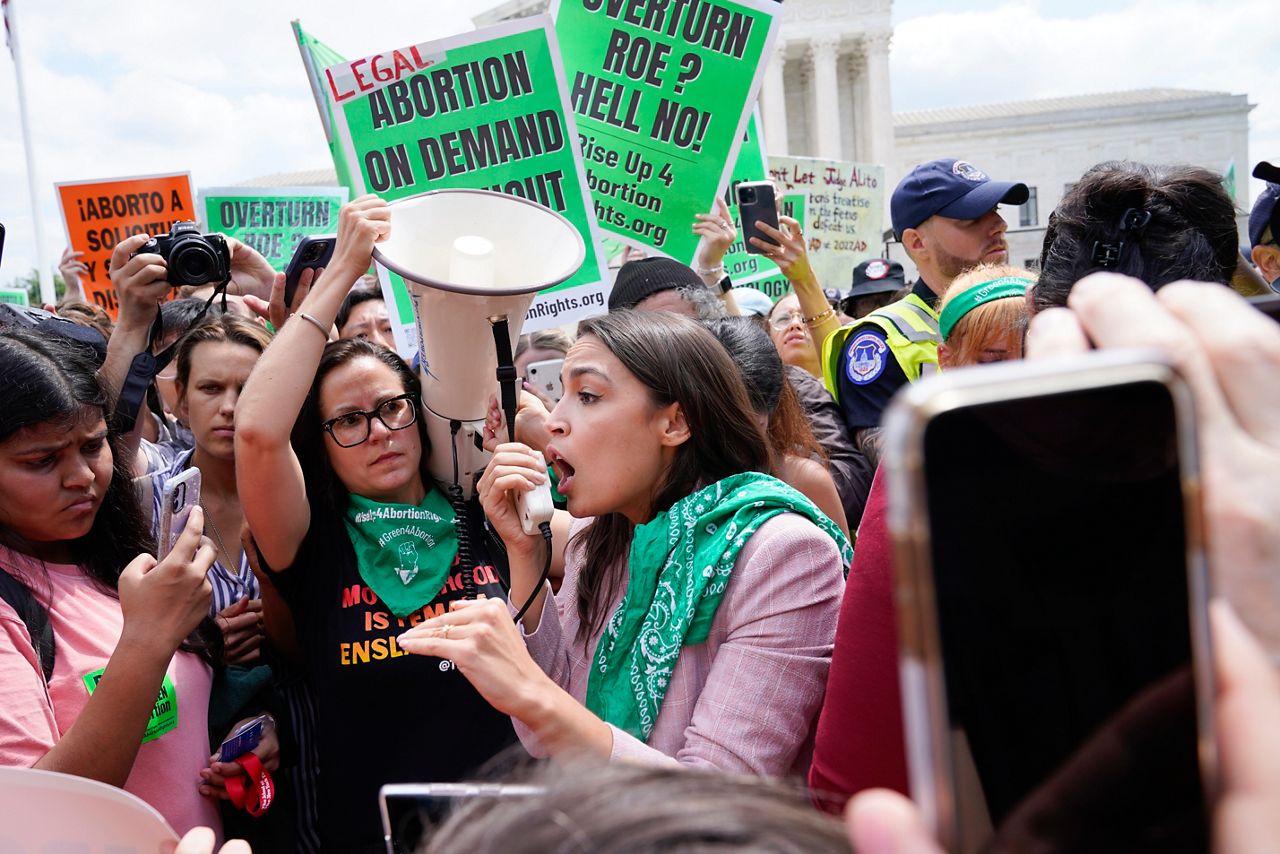
"This is not something that is going to be solved in a day, or in an election or in a year,” she said on the streets of Washington, D.C., adding: “We gotta strap in. This is a generational fight.”
While abortion will remain legal in California under Democratic Gov. Gavin Newsom, that didn’t stop scores of people from taking to the streets of Los Angeles in protest of the Supreme Court’s decision.
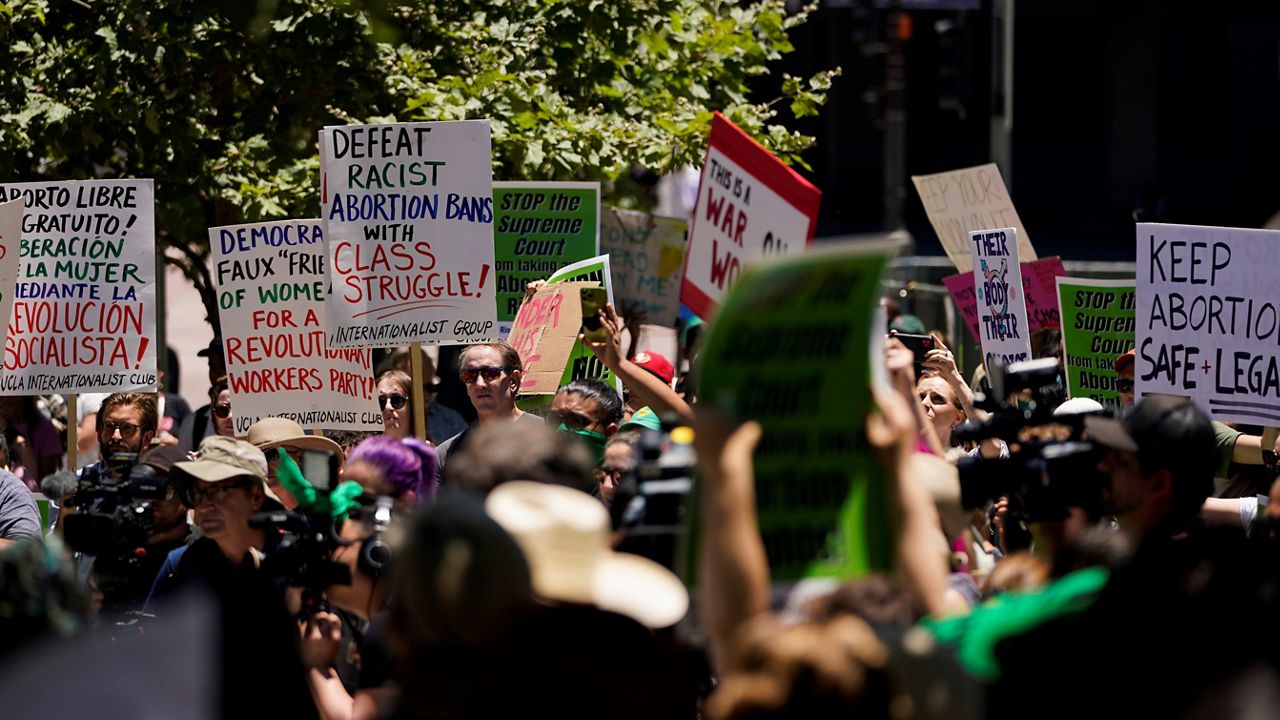
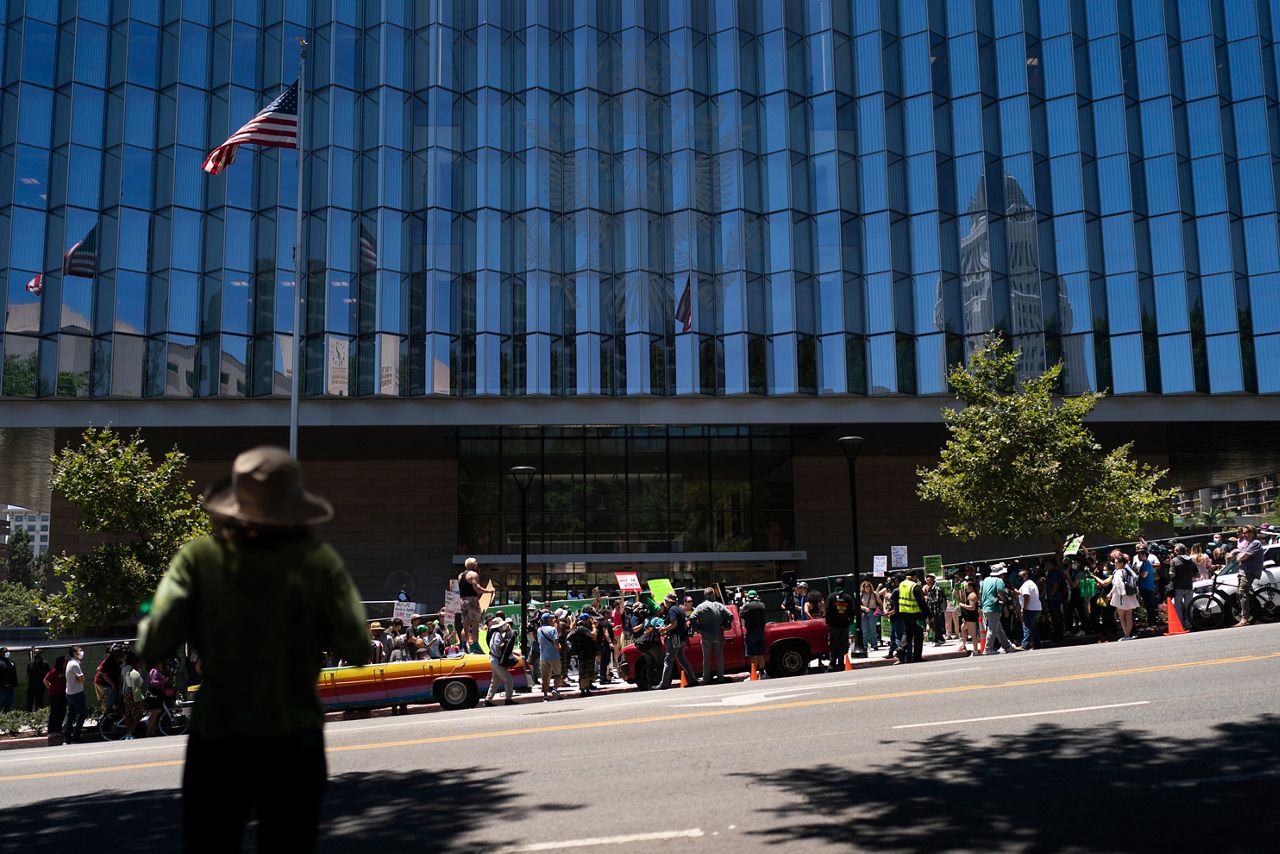
“In California, we trust women [...] we believe women,” Newsom’s wife, Jennifer Siebel Newsom told reporters in part.
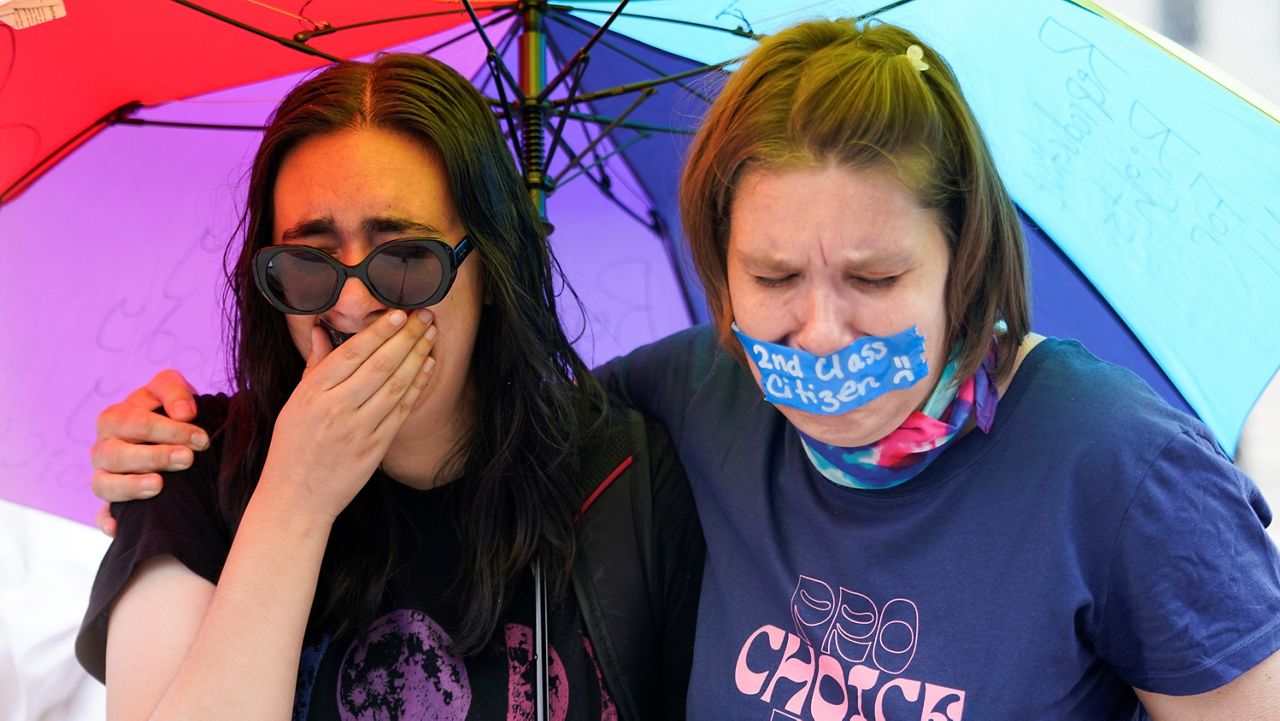
Missouri’s trigger law took effect on Friday after the Supreme Court overturned Roe v. Wade, effectively becoming the first state in the country to outlaw all abortions except for medical emergencies.
As of early Friday afternoon, a handful of abortion access supporters remained outside the Planned Parenthood on Forest Park Ave., holding signs asking cars to honk for support.
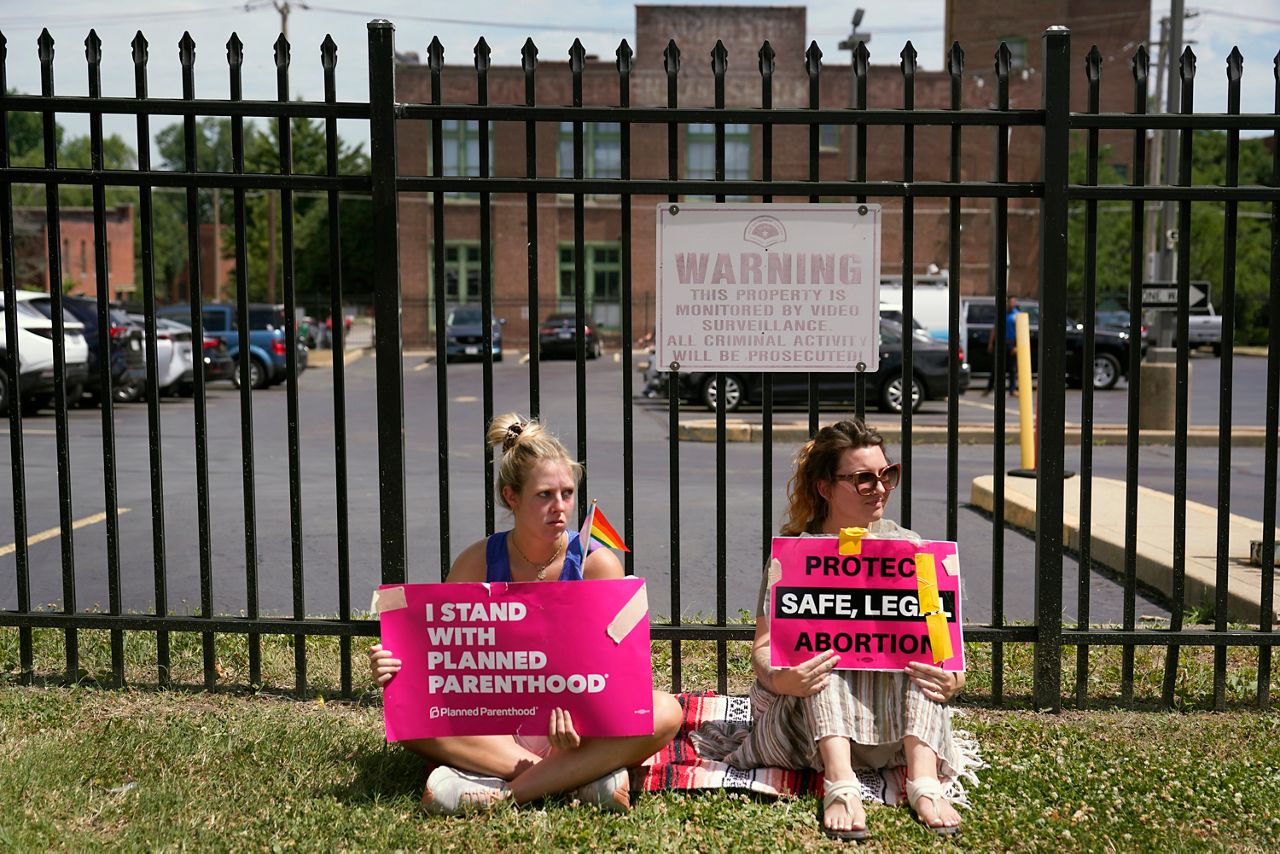
Though abortion is protected under New York law, many in the state took to the streets to voice their frustration over the Supreme Court's decision.
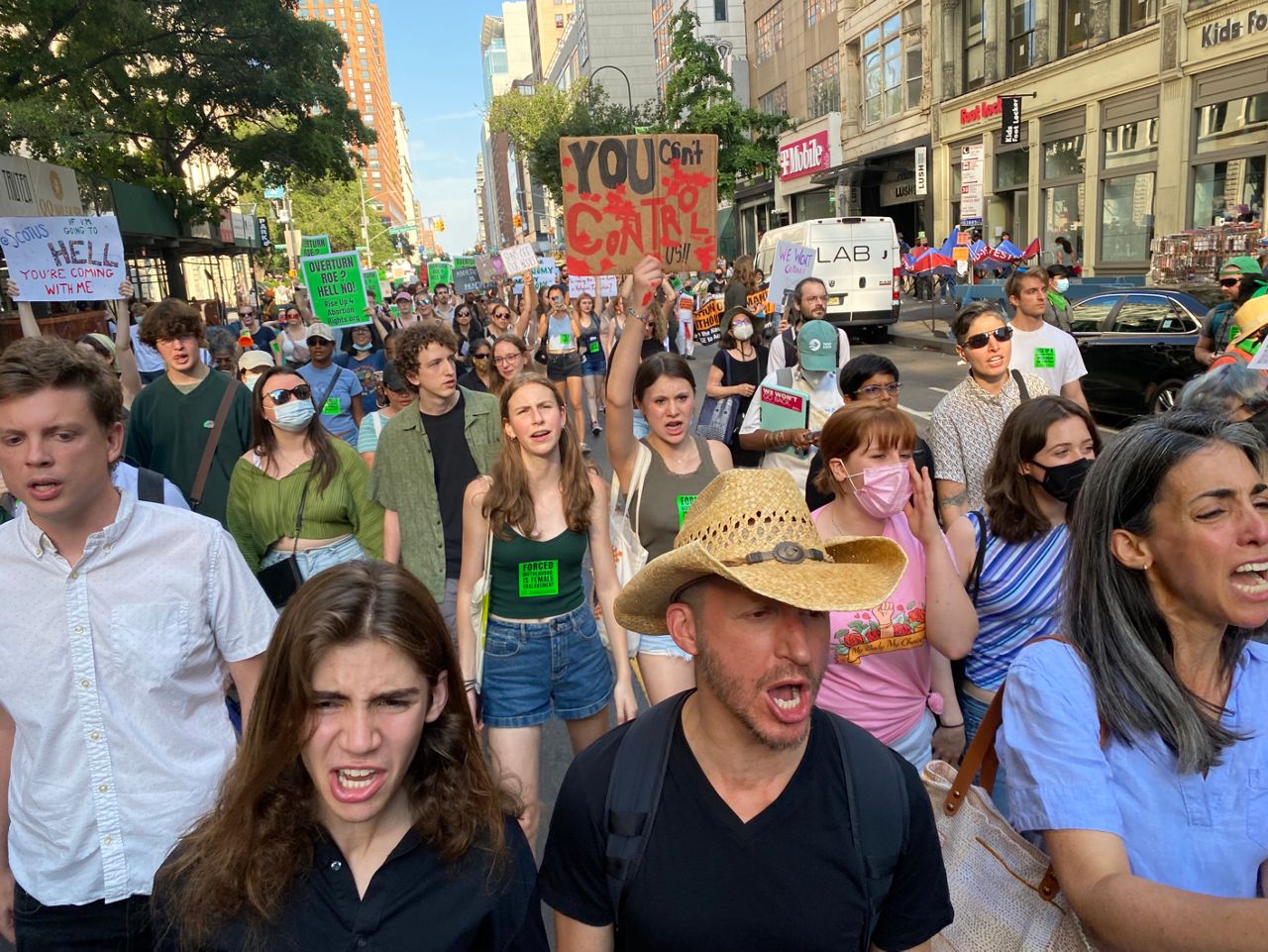
Still, abortion-rights groups in New York are urging state lawmakers to make New York an abortion sanctuary state.
Speaking to the Associated Press, Sophie Nir, executive director of Eleanor's Legacy, a group that recruits and trains pro-choice Democratic women to run for office in New York, explained why becoming an abortion sancutary state is needed.
"Many women who seek abortion care already have children and they need child care for them," she said. "They have to navigate complications with work, both in terms of loss of pay. If you weren't working for multiple days, and that means you're not making a salary for those days for many people, as well as getting that time off and not getting fired or having a penalty with your job."
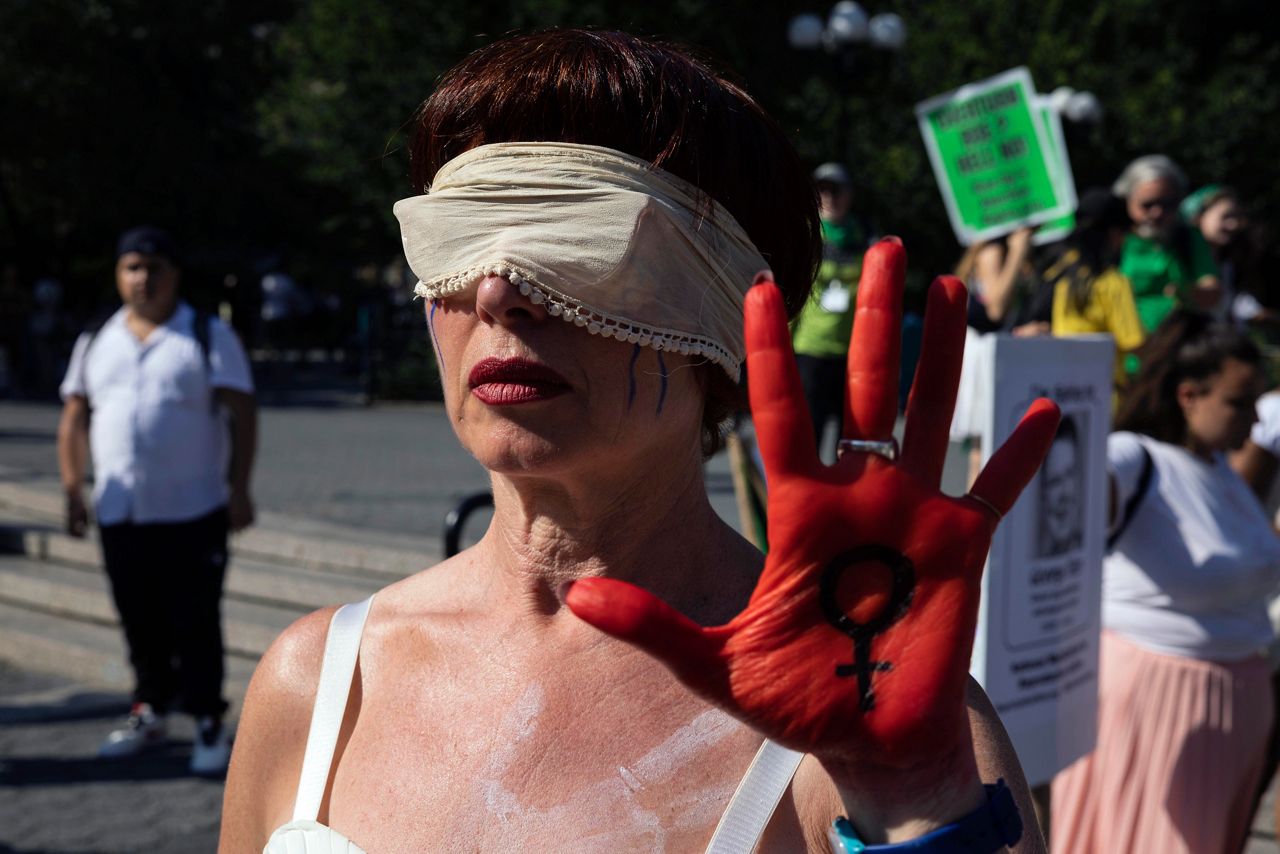
Many gathered in New York City's Union Square, donning signs and face paint in protest of the change that is expected to make abortion illegal in nearly half of the states.
Protesters from the ACLU of Kentucky and Planned Parenthood gathered outside of the Gene Snyder Federal Courthouse after the state’s Human Life Protection Act – a trigger law adopted in 2019 – went into effect, decrying the restrictive law that bans nearly all abortions.
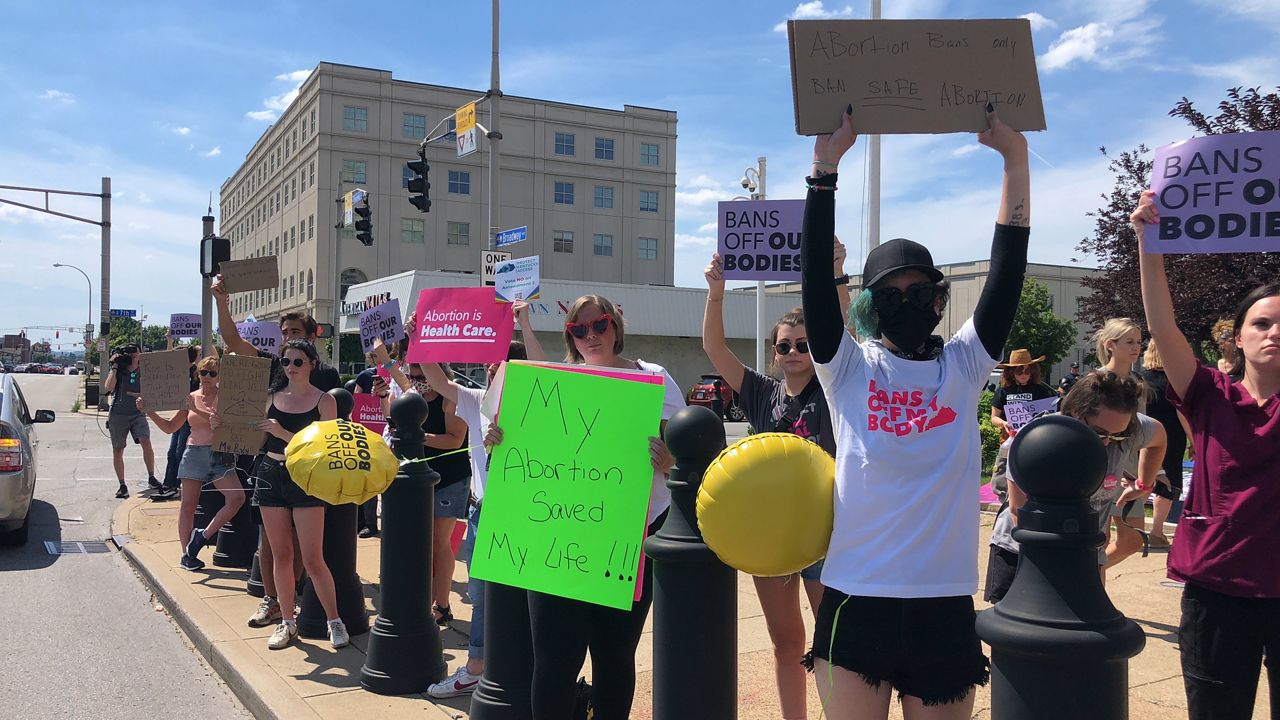
“Under the statute, no person may knowingly cause or aid in the ‘termination of the life of an unborn human being.’ Performing a prohibited abortion is a felony,” a release from Attorney General Daniel Cameron’s office read in part. “Pregnant mothers are not subject to any criminal liability.”
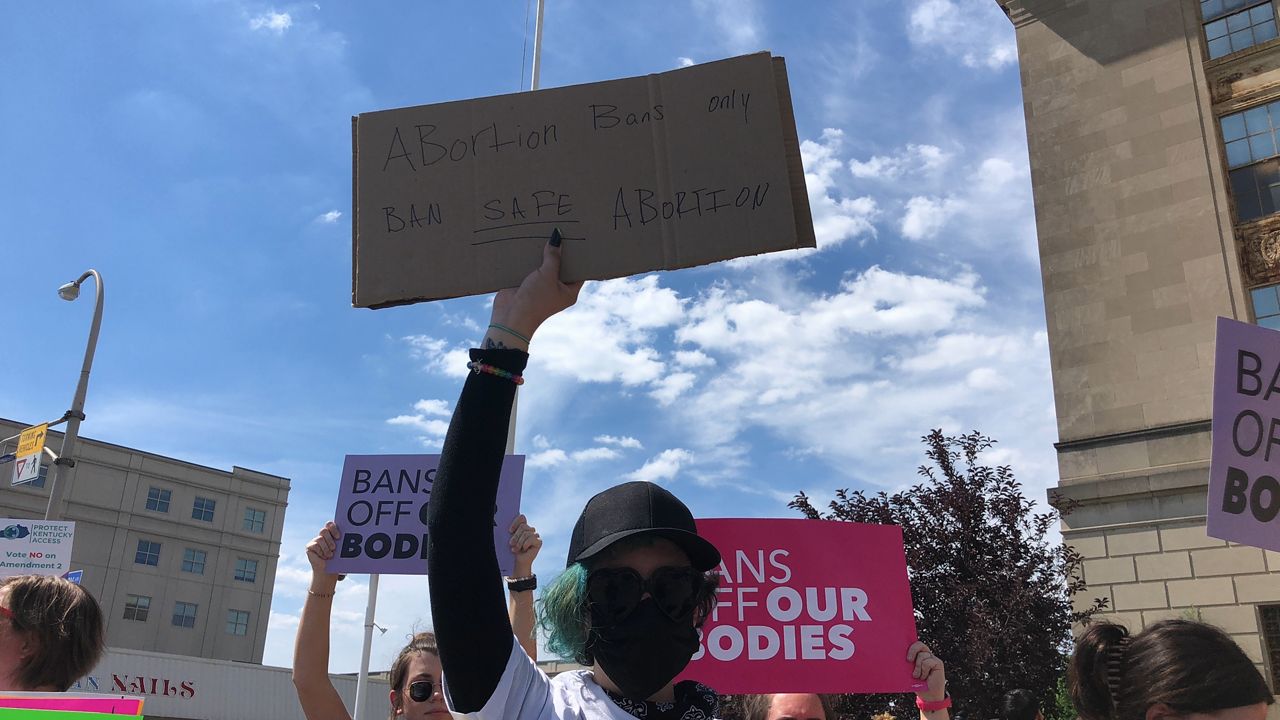
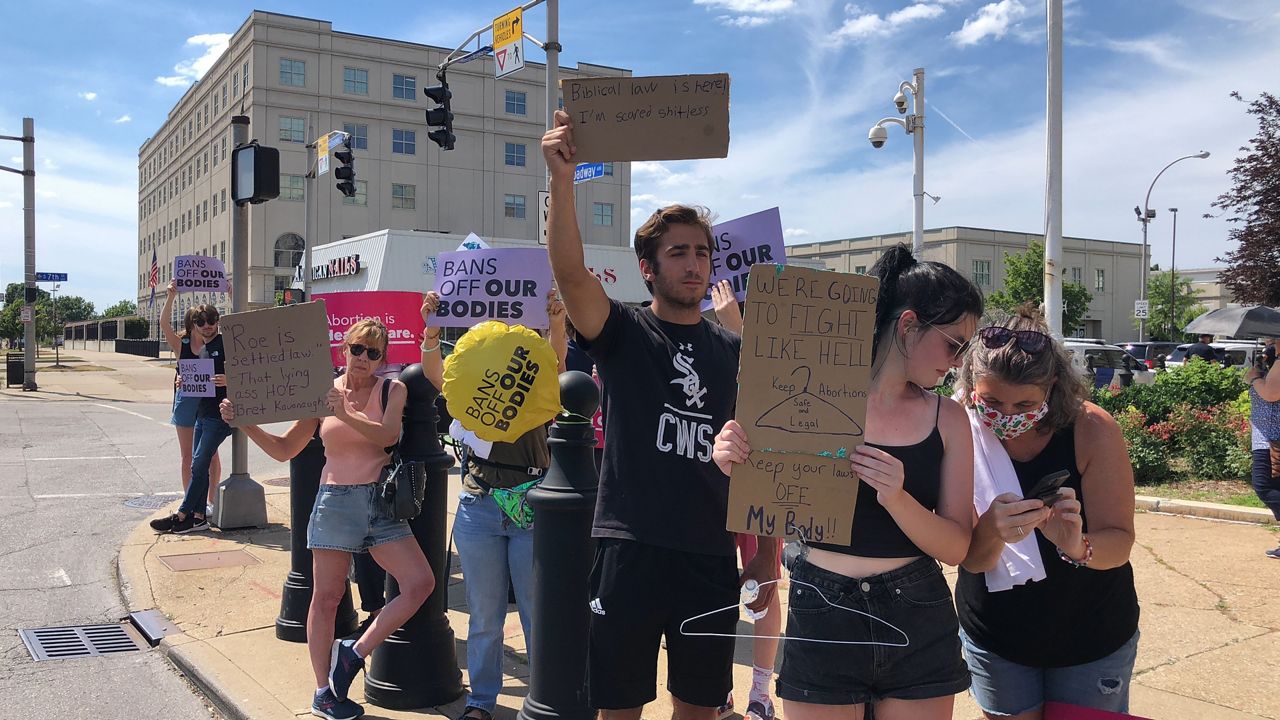
Kentucky's two abortion clinics, both of which are in Louisville, both stopped offering the procedure upon the Supreme Court's announcement.
While Maine's attorney general Aaron Frey pledged to protect abortion access within the state despite Friday's ruling, individuals gathered in the city center anyway to make their voices heard.
Planned Parenthood Maine announced a march and rally in Portland at 5:15 p.m. Friday in Lincoln Park and ending at City Hall.
“This dangerous and chilling decision will have devastating consequences across the country, forcing people to travel hundreds, sometimes thousands, of miles for care or remain pregnant,” Nicole Clegg, the organization’s vice president of public affairs, said in a statement.






